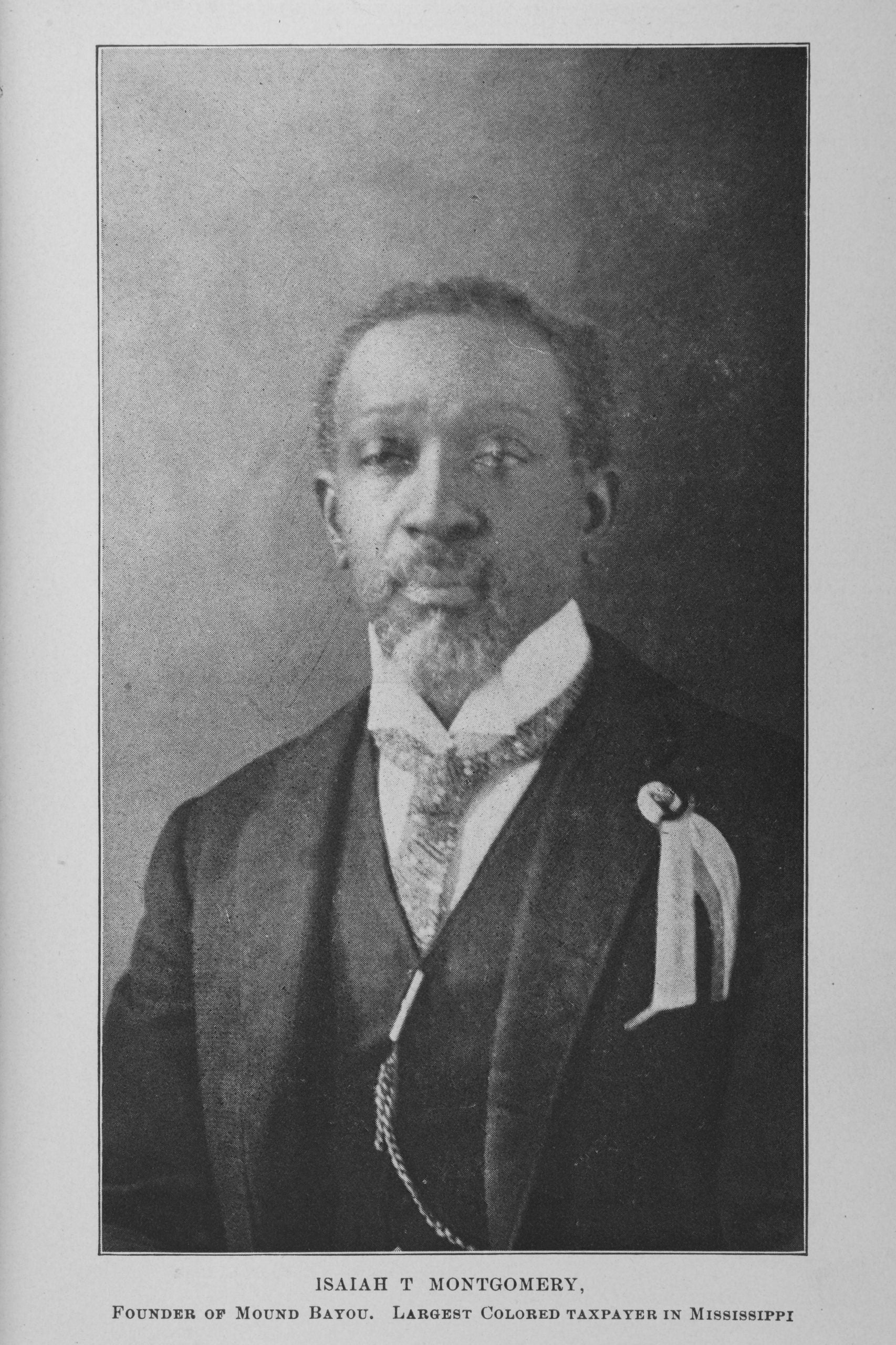The city of Mound Bayou, Mississippi, is a historic all-Black town founded in 1887 by formerly enslaved Black people who created a thriving haven for thousands of Black Americans during the Jim Crow era. By 1900, this small town in the central Mississippi Delta had developed from its modest beginnings, a “bustling community of Black-owned businesses and prosperous farmers.” Early Black townships like this once were economic, political, and social sanctuaries where African American families and businesses could thrive.
Here are five facts about this history-making Black city that you should know.
Founding An All Black Town
Founded in 1887 and incorporated in 1898, Mound Bayou is known as the “Jewel of the Delta.” “The town is the oldest United States all-black town founded by formerly enslaved people.”
It was founded by Isaiah T. Montgomery and his cousin Benjamin Green. The two formerly enslaved men purchased the 840-acre land for $7 per acre. Their vision was ground-breaking at the time, as the town was intended to be a self-sufficient, independent, all-black town from the beginning.
Mound Bayou was named after a large Indian mound that stood at the convergence of two bayous, draining the area. However, the location was chosen because of the Louisville, New Orleans, and Texas Line railroads that ran through its center.

A Thriving Economy In “The Jewel Of The Delta”
From its beginnings in a lonely swamp, this small town in the Mississippi Delta grew into a bustling community of Black-owned businesses and successful farms by 1900. Mound Bayou became a haven for thousands of Black Americans during Jim Crow. Within the community, there were 40 businesses, two mills, three cotton gins, a train station, a library, a few schools, a bank, and a hospital.
A town of this magnitude was unheard of at the time, and the economic development it enjoyed drew the attention of many, including President Theodore Roosevelt, who gave Mound Bayou the nickname “The Jewel of the Delta.”
The Role Mound Bayou Played In The Civil Rights Movement
Medgar Evers relocated to Mound Bayou in 1952 to sell insurance for Dr. T.R.M. Howard, and it was here that he first became involved in civil rights activism. From 1952 through 1955, the yearly rallies of the Regional Council of Negro Leadership were also held in town. Mound Bayou is also known for its involvement in the aftermath of the murder of 14-year-old Emmett Till. Dr. Howard welcomed reporters and witnesses into his house, offering them a place to stay during the trial.
The Importance Of Education
As documented in the town’s newspaper, The Demonstrator (1900), Mound Bayou advocated education as a vital part of community survival, particularly vocational training in scientific agriculture at the Mound Bayou Normal and Industrial Institute. Mound Bayou flourished between 1907 and 1915 as a railroad hub, enabling it to reach 8,000 people by 1911. A dramatic decline occurred during the Great Migration (1915-1930) when cotton prices collapsed, Booker T. Washington died, and Black paths to freedom were shifted from small towns to major cities.
A Look At Mound Bayou Now
Despite its sharp population decline over the century, Mound Bayou is still a predominantly Black town. Few stores and jobs remain, but this noble and historic community that remains 98 percent Black presses on. The town has opened the Mound Bayou Museum as a means to tell the local and state history.







